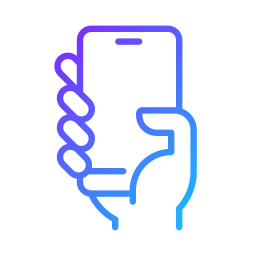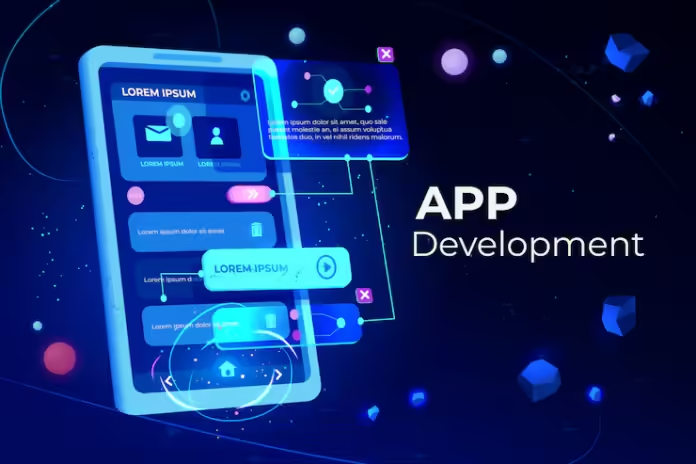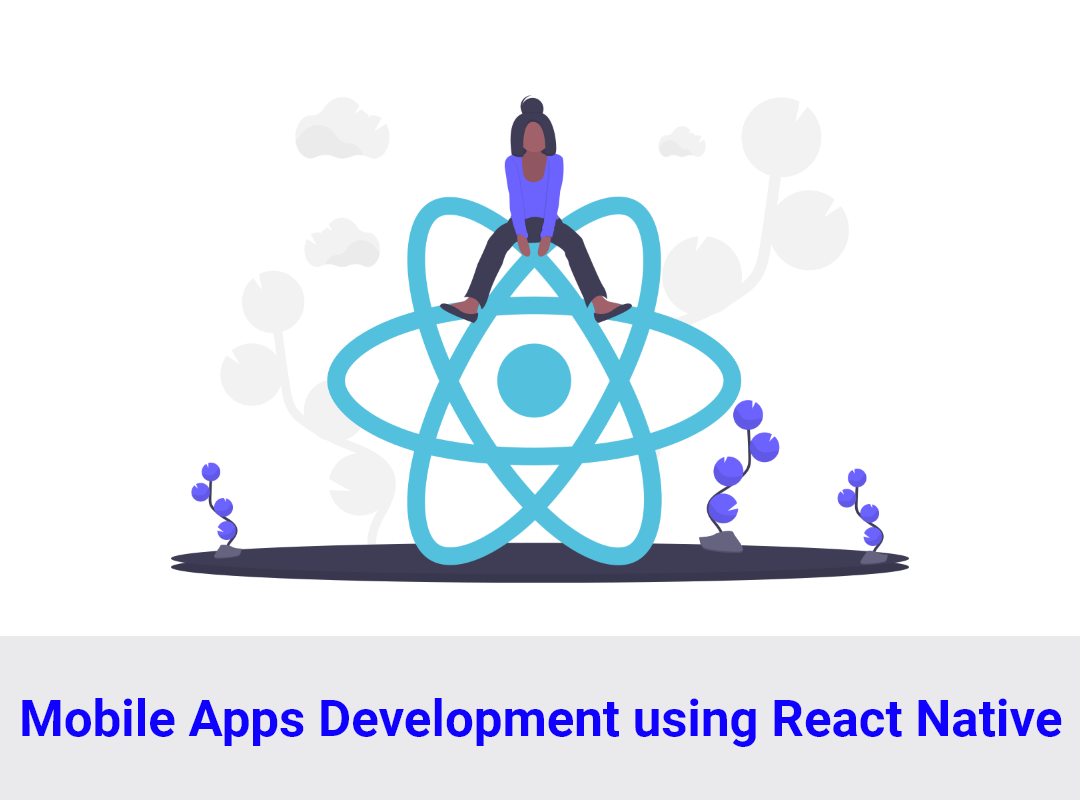The world of mobile apps development is constantly evolving, and hybrid mobile app development has emerged as a powerful solution for creating cross-platform applications. Hybrid mobile apps allow developers to write one codebase that can be used across different platforms, such as iOS and Android. As businesses continue to demand more cost-effective and efficient solutions for their mobile presence, hybrid mobile app development has gained significant traction. In this article, we will explore the emerging trends in hybrid mobile app development that are shaping the future of the industry and how developers can stay ahead of the curve.
Top Courses in Mobile App Development
1. Increased Adoption of Cross-Platform Development Frameworks
One of the biggest trends in mobile apps development is the continued rise of cross-platform frameworks. These frameworks enable developers to write a single codebase that runs on multiple platforms, saving time and resources while maintaining a high-quality user experience.
Frameworks like React Native, Flutter, and Xamarin are leading the charge in the hybrid app development space. React Native allows developers to use JavaScript and React to build native-like apps for both iOS and Android. Flutter, on the other hand, uses the Dart programming language and offers an expressive, flexible UI that adapts to different platforms. Xamarin is another strong contender, leveraging C# and .NET for creating high-performance apps.
The increased adoption of these frameworks is driven by the demand for faster app development cycles, improved performance, and cost savings. As businesses strive to launch mobile apps quickly to meet user needs, these cross-platform tools make it possible to build apps that look and feel native, without the need for separate development teams for iOS and Android.
For aspiring developers, gaining hands-on experience with these frameworks is an excellent way to enhance their skills in mobile apps development. Platforms like easyshiksha.com offer courses on these technologies, providing learners with the knowledge they need to succeed in the hybrid app development field.
2. Integration of Artificial Intelligence (AI) and Machine Learning (ML)
Artificial Intelligence (AI) and Machine Learning (ML) are no longer just buzzwords but are becoming integrated into mobile apps development to enhance user experiences. Hybrid mobile apps are increasingly adopting AI and ML to provide smarter, more personalized features. For example, AI-powered chatbots are now common in customer service apps, while ML algorithms help apps recommend personalized content based on user behavior.
Incorporating AI and ML into hybrid mobile apps presents unique challenges, such as the need for powerful back-end systems and cloud services to handle complex computations. However, cloud services like Google Firebase, Amazon Web Services (AWS), and Microsoft Azure make it easier for developers to integrate AI and ML capabilities into their hybrid mobile apps without reinventing the wheel.
The future of hybrid app development will heavily rely on AI-driven features like natural language processing (NLP), image recognition, and predictive analytics. As such, developers who understand how to leverage AI and ML in mobile apps development will have a competitive advantage in the job market.
3. Enhanced User Experience with Native-Like Features
One of the challenges with hybrid mobile apps in the past has been offering a truly native-like experience. However, with the continuous improvement of hybrid frameworks, developers are now able to create apps that are indistinguishable from their native counterparts.
Hybrid frameworks such as React Native and Flutter allow developers to access native APIs, which means apps can now use device features such as GPS, camera, and accelerometer with high performance. Additionally, the design tools provided by these frameworks enable developers to create highly responsive and visually appealing interfaces that feel just like native apps.
The push for better performance and more native-like features in hybrid mobile apps is reshaping the way developers approach UI/UX design. Hybrid apps are no longer viewed as second-class citizens compared to native apps; they are now able to deliver high-performance, visually rich experiences that users expect.
For aspiring developers looking to master the art of creating native-like experiences in hybrid apps, easyshiksha.com offers specialized courses in mobile apps development. These courses dive deep into the principles of UI/UX design and performance optimization to help developers build top-tier hybrid apps.
4. 5G Connectivity and Real-Time Features
With the rollout of 5G networks around the globe, hybrid mobile apps are expected to benefit significantly from faster data speeds and lower latency. This will open up new possibilities for real-time features such as live streaming, video conferencing, and multiplayer gaming.
Hybrid apps can now take advantage of 5G’s ultra-fast speeds to deliver seamless experiences for users. For instance, apps that require large data transfers, such as cloud gaming or high-quality video streaming services, will see massive improvements in performance with 5G connectivity.
The integration of real-time features, such as real-time chat, live notifications, and geo-location tracking, will also become more prevalent in hybrid mobile apps. These features will enhance the overall user experience and provide businesses with new ways to engage their customers.
As 5G technology continues to evolve, developers will need to stay updated on the best practices for leveraging these advancements in their hybrid apps. Easyshiksha.com provides online courses that cover the integration of emerging technologies like 5G and real-time communication, allowing developers to stay ahead of the curve in mobile apps development.
5. Focus on Security and Data Privacy
As mobile apps continue to handle sensitive personal data, security and data privacy are more important than ever. Hybrid mobile apps, like all other apps, must comply with strict data protection regulations, such as GDPR and CCPA, to ensure that user data is secure.
Developers are increasingly adopting security best practices such as end-to-end encryption, secure authentication methods (e.g., biometric authentication), and secure API integration. Moreover, hybrid mobile app frameworks now provide more robust security features to safeguard against common vulnerabilities.
Businesses and users alike expect their mobile apps to protect their data and privacy. As a result, developers must be vigilant in integrating security measures into every aspect of the app development process. Those who specialize in security-focused hybrid app development will be in high demand.
 Online Courses with Certification
Online Courses with Certification
6. Augmented Reality (AR) and Virtual Reality (VR) Integration
Augmented Reality (AR) and Virtual Reality (VR) are gaining traction in mobile apps, and hybrid mobile apps are no exception. These technologies enhance user experiences by merging the digital world with the real world in innovative ways. Retail, education, and gaming industries are already using AR and VR to engage users, and this trend will only continue to grow.
Frameworks like Unity, combined with hybrid mobile app development tools, are enabling developers to integrate AR and VR into their apps. This opens up opportunities for developers to create immersive experiences that can be used for everything from virtual shopping to remote collaboration.
For developers who want to tap into the AR/VR market, easyshiksha.com offers courses on integrating AR and VR into mobile apps. Learning how to develop with these technologies will help you stay ahead of the competition in the rapidly evolving mobile apps development industry.

Check our latest article: How Freshers Can Turn Internships Into Full-Time Offers
Get Courses: Graphics online course
Conclusion
Hybrid mobile app development continues to evolve, and staying updated on emerging trends is essential for developers looking to stay ahead in this competitive field. The rise of cross-platform frameworks, AI integration, enhanced user experience, 5G connectivity, security focus, and AR/VR adoption are all trends that will define the future of hybrid mobile apps.
For aspiring developers, gaining experience in these areas is crucial. An internship certificate in hybrid mobile app development can provide valuable hands-on experience, helping you build the skills necessary for success. Platforms like easyshiksha.com offer courses and internships that can equip you with the knowledge and certification needed to thrive in the mobile apps development industry.


































































